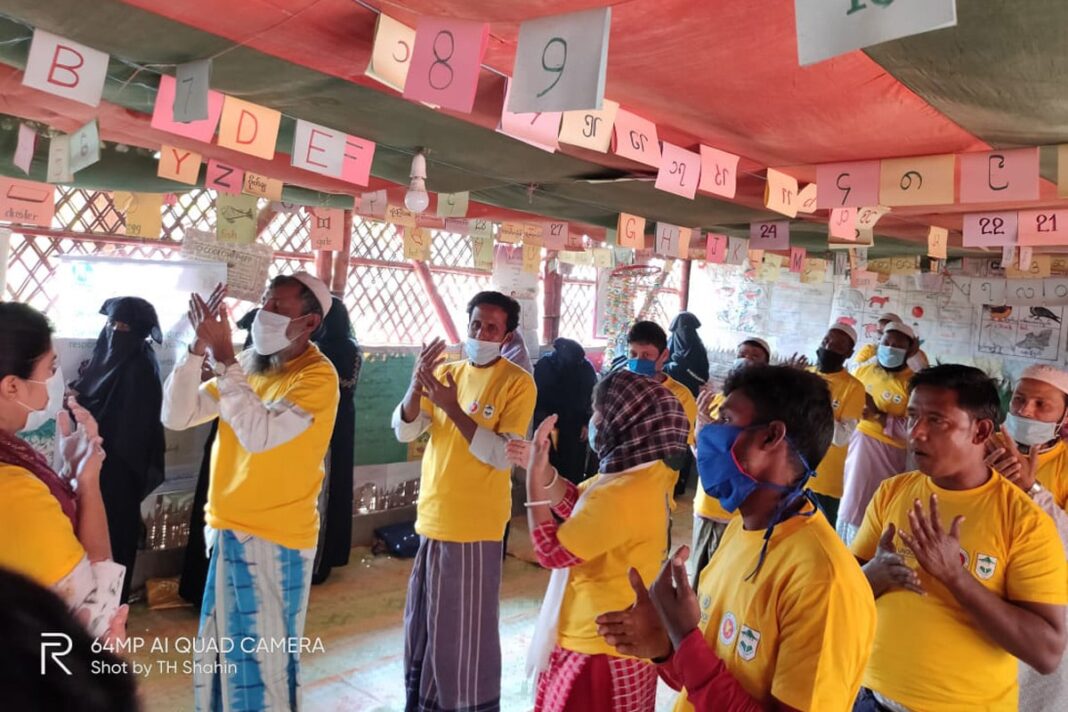The theme of World Drug Day 2022 is ‘health and humanitarian crises’. In the lead up to the Day, UNODC is highlighting its work on drug prevention and treatment around the world, particularly in crisis situations.
Building Stronger Families to Prevent Drug Use and Trafficking among Rohingya Refugees in Bangladesh
Bangladesh, 21 June 2022 – The Rohingya people, a stateless Muslim minority population of Myanmar, can be considered among the most marginalized and vulnerable populations in the world. Denied citizenship in Myanmar, the Rohingyas have long been unable to exercise basic rights, such as the right to vote, travel, marry, access to shelter, food and health services, and many more.
An outbreak of violence in Myanmar in 2017 caused around a million Rohingya to flee across the border to Bangladesh and become refugees. The situation became so dire for the Rohingya that the International Court of Justice, the United Nations’ highest court, imposed provisional measures ordering Myanmar to “take all measures within its power” to prevent the commission of acts defined in the Genocide Convention.
As of May 2022, over 926,486 Rohingya refugees had sought refuge in Bangladesh, specifically in the country’s Cox’s Bazar district.
The influx of refugees has also reshaped drug prevention challenges in the region, with the Myanmar-Bangladesh border being a historical drug trafficking route. Bangladesh has long been both a destination and transit country for illicit drugs, particularly Yaba (Thai for “crazy medicine”), a combination of methamphetamine and caffeine.
A large number of vulnerable Rohingya refugees have thus become drug users. Others (particularly the young) are entering the drug business as a career path, often without their families’ knowledge or consent, due to limited employment options and livelihood opportunities.
Together with the UN Refugee Agency (UNHCR), the UN Office on Drugs and Crime (UNODC) supported pre-piloting cycles of the ‘Strong Families’ Programme in four Rohingya refugee camps in Cox’s Bazar. Families are the most powerful social institution in South Asia, meaning that they can be useful tools in raising awareness of the perils of drug smuggling and use.
Strong Families supports caregivers to be better parents and strengthens positive, age-specific, and age-appropriate family functioning and interactions. The programme is broken down into caregiver sessions, child sessions, and family sessions to improve communication and relationships and reduce coercive parenting.
One woman participant endorsed the programme’s lessons, noting that “We need to make the children understand [about the importance of not using drugs]. We should not apply force; but have to make them realize this with patience and care.”
“You are raising the child in a stressful situation,” said Wadih Maalouf, Programme Officer, Prevention, Treatment, and Rehabilitation Section, UNODC, referring to the Rohingya humanitarian crisis. The programme helps you to identify “how can you overcome that stress, realize the stress of the child, and help the child overcome his or her stress.”
A male participant in the programme extolled the benefits of Strong Families, saying that “Actually talking to the children and listening to them will help me to raise my children better…I can also discuss my problems with other parents and how to build trusted relationships with children.”
The Strong Families programme, implemented in 22 countries around the world, has proven to delay initiation of substance abuse, prevent and reduce early aggressive behavior and delinquency, reduce anti-social peer affiliation, and increase peer pressure resistance skills.
The programme included a three-week training of stakeholders to develop a pool of trainers equipped to implement Strong Families, which included a research component to observe how changed behavior among families could help curb drug use among children.
Altogether, over 300 refugee families participated, which included more than 622 caregivers and 620 children. Additional sessions of Strong Families are envisioned to reach more refugees in the future.
Further information
Learn more about UNODC’s work in Myanmar here.
US Commission on International Religious Freedom Releases 2022 Annual Report









